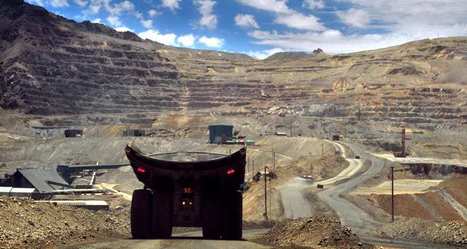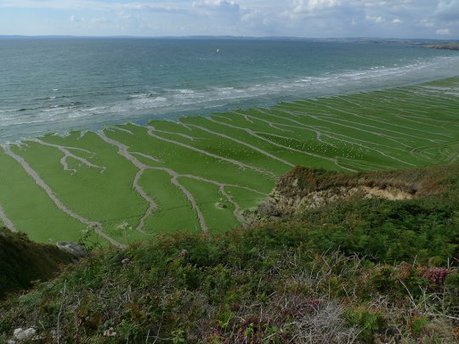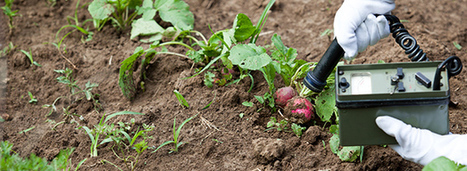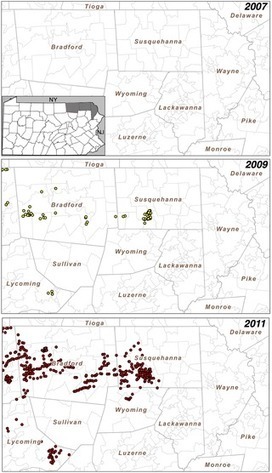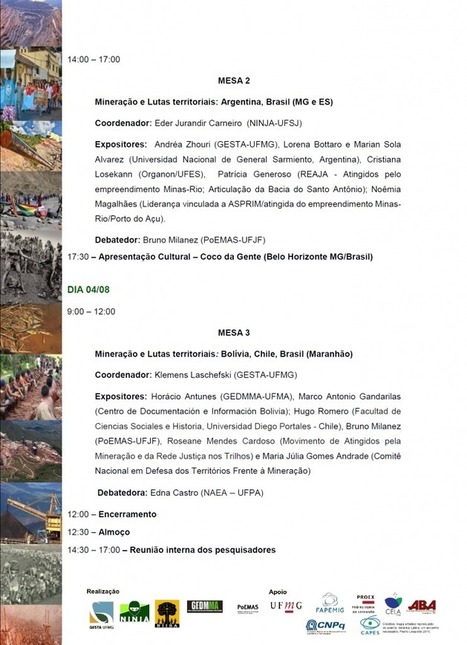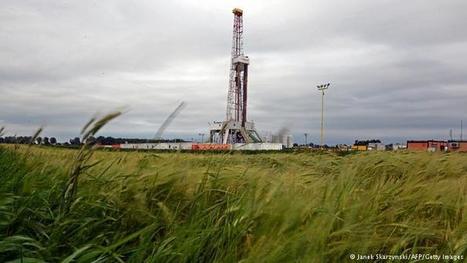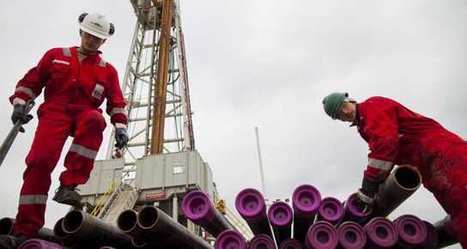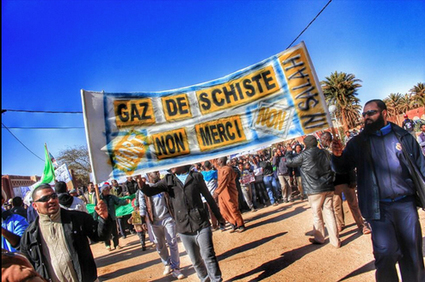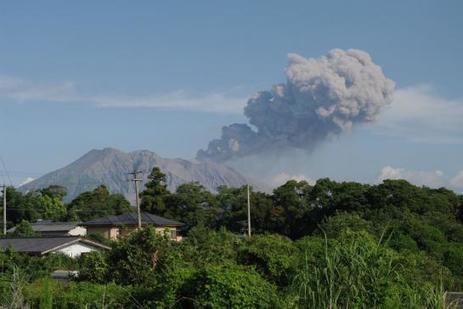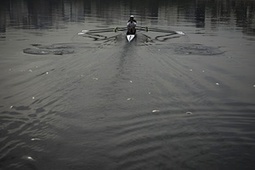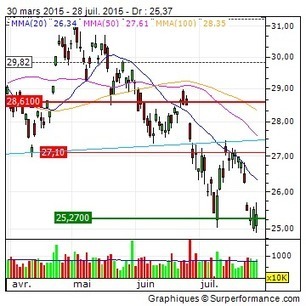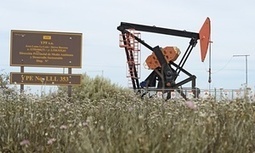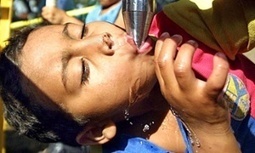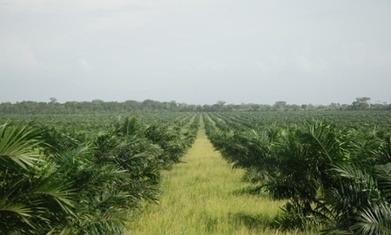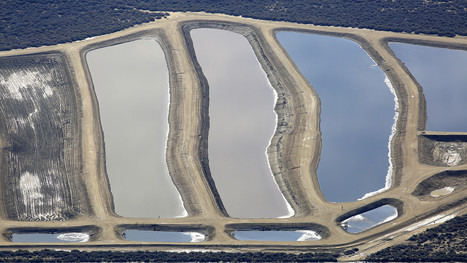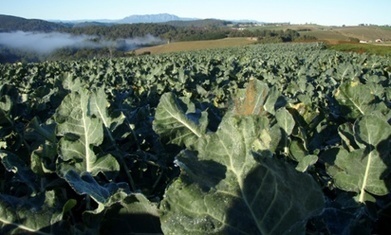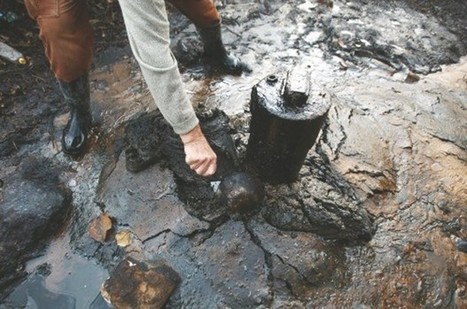 Your new post is loading...
 Your new post is loading...

|
Scooped by
MOVUS
|
Uruguay / CAMPAIGN FOR NATIONAL REFERENDUM AGAINST OPEN PIT METAL MINING
CAMPAIGN FOR NATIONAL REFERENDUM AGAINST OPEN PIT METAL MINING Montevideo, december 8, 2013. The last week was launched in Uruguay a campaign to collect signatures to promote a national referendum to include an amendment in the Constitution of the Republic to ban open pit metal mining throughout the national territory. The National pro-Referendum Movement Uruguay Free from Open Pit Metal Mining (URUGUAYLIBRE)is a non partisan coalition of citizens and social groups from 11 of the 19 municipalities of the country concerned about the introduction of an activity with serious impacts on society and natural ecosystems. Uruguay is located in the Humid Pampa, a privileged ecosystem of fertile soils and abundant surface and underground water resources that sustain grasslands and lands where agriculture and cattle-raising are developed. The national economy is based on these two activities that promote the country’s trade, industry and exports. Over the last decades, this ecosystem has been threatened by large-scale agricultural plantations intended for the international market, which require a massive and ever-growing use of chemical pesticides and fertilisers and cause the degradation of large areas of the territory, increasing erosion and the pollution of water bodies. More recently, a project to exploit the country’s metal ore deposits –mainly iron and gold- through open-pit mining is promoted by the government. Successive geological studies have confirmed that Uruguay is not rich in these minerals, its reserves are scarce and have low concentration levels, exhaustible after a few years of extraction. An international speculative scenario –transient, as are they all, and the cycle of which is already at its declining stage-, raised metal prices above historical values and gave rise to the possibility of a lucrative business for companies whose objective is to rapidly extract the highest possible volume of these minerals and sell them abroad. Open-pit mining of low-concentration metal deposits - particularly, of iron and gold- is the most depleting and polluting activity for soils and water bodies in the planet. Several countries have banned its development. Among these stands Costa Rica, a Centralamerican country with great similarities to Uruguay. This activity jeopardises the integrity of the Uruguayan territory –and, therefore, the productive sectors and cultures that have historically supported the country- due to the downright destruction of the exploitation area and its additional massive impact on a vast portion of soils and water resources. To the above, inordinate privileges and subsidies must be added, which will be ultimately borne by taxpayers. For the Uruguayan Constitution, signatures of ten percent of the electorate (260,000 signatures) are needed to be called a referendum, coinciding with the next national election, in which decide on whether or not the proposed amendment. The proposal to amend the Constitution says:
To the President of the General Assembly of the Legislative Power
Mr. Danilo Astori
I, the undersigned, hereby promote before you the following Amendment to the Constitution, as per the provisions of Section 331, paragraph A of the Constitution of the Republic, which shall be subject to popular decision at the most immediate election.
Let the following paragraphs be added to Section No. 47: "The integrity of soils and water resources is an essential part of the nation’s heritage and it must be preserved from any and all activities resulting in the final degradation or destruction thereof. Open-pit mining activities intended for the extraction of metal ore are hereby forbidden in the whole national territory. Any and all authorisations, concessions or licenses currently in force which in any way infringe this provision shall be rendered null and void as of the effective date of this reform." uruguay libre (http://uruguayciudadanossinmegamineria.org)

|
Scooped by
MOVUS
|
Les Echos 3/08/2015
Le Chili et le Pérou ont les yeux rivés sur la Chine, leur meilleur client. Les deux voisins d’Amérique latine, premiers pays producteurs et exportateurs mondiaux de cuivre, sont particulièrement exposés à la chute du métal, conséquence du ralentissement du premier consommateur mondial, la Chine. [...]
Tensions sociales Les géants miniers, de leur côté, comptent davantage sur la maîtrise de leurs coûts, déjà réduits par la baisse du prix de l’énergie, pour retrouver leurs marges. Le géant public Codelco, premier producteur mondial, a annoncé en janvier un plan de réduction des dépenses de 1 milliard de dollars pour 2015, soulevant des mouvements de protestation syndicale. Et pour cause, la flambée des cours du métal durant la décennie passée a conduit à l’explosion de la charge de travail des employés miniers, dans des conditions de sécurité parfois dramatiques. Au Pérou non plus, le secteur minier n’est pas exempt de conflits sociaux. Récemment, c’est le projet de mine de cuivre Tía María qui a soulevé une vague de grèves et a même poussé le président Humala à déclarer fin mai l’état d’urgence dans la région. Le projet d’extraction, chiffré à 1,2 milliard d’euros, constitue une menace pour l’agriculture locale du fait de sa consommation d’eau et de sa production de déchets et de produits chimiques. Le gouvernement a validé le projet de la compagnie minière mexicaine Southern Copper, qui a pourtant déjà écopé de nombreuses amendes pour infractions aux règles environnementales. Le président, qui avait promis « l’eau avant l’or » lors de sa campagne présidentielle de 2011, semble désormais plus attaché à protéger les investissements dans le secteur.

|
Scooped by
MOVUS
|
Basta Mag 22/07/2015 Sophie Chapelle
En France et en Europe, le recours intensif aux phosphates dans l’agriculture provoque un appauvrissement des sols, pollue les rivières et génère la prolifération des algues vertes. Mais d’où viennent ces phosphates chimiques qui nous servent d’engrais ? De leur dispersion dans les campagnes françaises à leur extraction minière, Basta ! a remonté la filière du phosphate jusqu’en Tunisie, longtemps l’un des principaux fournisseurs de l’Europe. Oasis en voie de désertification, pathologies, pollution marine : ses impacts environnementaux, sanitaires et sociaux y sont également désastreux. Le phosphate, meilleur ami des agriculteurs, vraiment ? Reportage.

|
Scooped by
MOVUS
|
Actu environnement 30/07/2015
Un projet de règlement européen fixant les limites de contamination applicables aux aliments en cas d'accident nucléaire en Europe suscite une polémique au Parlement européen et parmi les associations d'expertise indépendante de la radioactivité.

|
Scooped by
MOVUS
|
Plos 15/07/2015
Over the past ten years, unconventional gas and oil drilling (UGOD) has markedly expanded in the United States. Despite substantial increases in well drilling, the health consequences of UGOD toxicant exposure remain unclear. This study examines an association between wells and healthcare use by zip code from 2007 to 2011 in Pennsylvania. Inpatient discharge databases from the Pennsylvania Healthcare Cost Containment Council were correlated with active wells by zip code in three counties in Pennsylvania. For overall inpatient prevalence rates and 25 specific medical categories, the association of inpatient prevalence rates with number of wells per zip code and, separately, with wells per km 2 (separated into quantiles and defined as well density) were estimated using fixed-effects Poisson models. To account for multiple comparisons, a Bonferroni correction with associations of p<0.00096 was considered statistically significant. Cardiology inpatient prevalence rates were significantly associated with number of wells per zip code (p<0.00096) and wells per km 2 (p<0.00096) while neurology inpatient prevalence rates were significantly associated with wells per km 2 (p<0.00096). Furthermore, evidence also supported an association between well density and inpatient prevalence rates for the medical categories of dermatology, neurology, oncology, and urology. These data suggest that UGOD wells, which dramatically increased in the past decade, were associated with increased inpatient prevalence rates within specific medical categories in Pennsylvania. Further studies are necessary to address healthcare costs of UGOD and determine whether specific toxicants or combinations are associated with organ-specific responses.
A 80% d’origine agricole, le protoxyde d’azote demeure peu connu, avec d’immenses écarts entre les modèles d’émissions et leur concentration réelle dans l’air. Publiée lundi 27 juillet dans les Proceedings of the National Academy of Sciences (Pnas), une étude américaine en révèle l’explication: les émissions par les rivières sont très largement sous-évaluées.
Via Hubert MESSMER

|
Scooped by
MOVUS
|

|
Scooped by
MOVUS
|
DW 20/07/2015
The Netherlands has banned fracking until 2020. Over the past several years, a number of other European countries declared a ban on exploiting new natural gas deposits. So, is the apparent European shale gas boom over?

|
Scooped by
MOVUS
|
Rue 89 23/03/2015 Thibaut Schepman
Vous ne connaissez pas le glyphosate ? En fait, si. C’est Monsanto qui a vendu le premier ce produit chimique, en 1974, via son célèbre Roundup. Depuis, le glyphosate est devenu l’herbicide le plus vendu au monde. Il est utilisé dans les champs mais aussi dans les jardins, les forêts, les rues, les cimetières. Du coup, on en trouve dans l’air que l’on respire, dans l’eau que l’on boit et dans la nourriture que l’on mange, a rappelé ce vendredi le Circ (Centre international de recherche sur le cancer), l’agence internationale de référence pour la recherche sur le cancer, qui a été créée par l’Organisation mondiale de la santé et qui est basée en France, à Lyon. Dans son évaluation – publiée après un travail d’un an mené par dix-sept experts internationaux indépendants qui ont recensé l’ensemble des études scientifiques sur le sujet – le Circ a classé ce produit comme « probablement cancérogène ».
Le président américain Barack Obama n'est pas tendre envers le pétrole canadien. Il a déclaré vendredi que la manière dont le pétrole est extrait au Canada est exceptionnellement sale, ce qui explique pourquoi les écologistes sont si nombreux à s'y opposer.
«Évidemment, il y a toujours des risques à extraire beaucoup de pétrole des fermes du Nebraska et d'autres régions du pays», a-t-il affirmé lors d'une rencontre avec des citoyens américains en Caroline du Sud.
Le président américain semble de plus en plus critique à l'égard de l'oléoduc Keystone XL. Il répète depuis plusieurs mois que les bénéfices du projet seraient beaucoup plus grands pour le Canada et moins pour les États-Unis.
Ses déclarations au collège Benedict se distinguent toutefois de ses précédentes puisqu'il a visé ici l'industrie toute entière.
Via Damoclès

|
Scooped by
MOVUS
|
USGS 19/02/2015
MENLO PARK, Calif.— A paper published today in Science provides a case for increasing transparency and data collection to enable strategies for mitigating the effects of human-induced earthquakes caused by wastewater injection associated with oil and gas production in the United States. The paper is the result of a series of workshops led by scientists at the U.S. Geological Survey in collaboration with the University of Colorado, Oklahoma Geological Survey and Lawrence Berkeley National Laboratory, suggests that it is possible to reduce the hazard of induced seismicity through management of injection activities. Large areas of the United States that used to experience few or no earthquakes have, in recent years, experienced a remarkable increase in earthquake activity that has caused considerable public concern as well as damage to structures. This rise in seismic activity, especially in the central United States, is not the result of natural processes. Instead, the increased seismicity is due to fluid injection associated with new technologies that enable the extraction of oil and gas from previously unproductive reservoirs. These modern extraction techniques result in large quantities of wastewater produced along with the oil and gas. The disposal of this wastewater by deep injection occasionally results in earthquakes that are large enough to be felt, and sometimes damaging. Deep injection of wastewater is the primary cause of the dramatic rise in detected earthquakes and the corresponding increase in seismic hazard in the central U.S. [...]

|
Scooped by
MOVUS
|
Les Echos 6/02/2015 Aucun puits foré dans le pays ne s’est avéré exploitable. L’américain Chevron met un terme à sa campagne d’exploration. Après Exxon Mobil, Total, Marathon Oil, Talisman ou encore ENI, c’est aujourd’hui Chevron qui jette l’éponge en Pologne. Le groupe pétrolier américain a annoncé il y a quelques jours qu’il cessait ses opérations d’exploration de gaz de schiste dans le pays. « Les opportunités locales ne sont plus compétitives par rapport à notre portefeuille mondial », s’est-il borné à indiquer dans un communiqué. Ce retrait douche un peu plus les espoirs des autorités polonaises, qui s’étaient prises à rêver d’un eldorado gazier leur permettant de s’affranchir de leurs approvisionnements auprès du voisin russe. D’autant que Chevron est la compagnie étrangère la plus impliquée dans les schistes en Europe, ayant aussi acquis des concessions en Roumanie ou en Ukraine. Sur le papier, la Pologne apparaissait comme l’un des pays les plus prometteurs du Vieux Continent : l’EIA, l’agence américaine d’information sur l’énergie, et l’Institut géologique polonais ont publié des estimations de réserves mirifiques: près de 2.000 milliards de m3 pour les moins optimistes d’entre elles, correspondant à plus de 30 ans de consommation du pays. Ces chiffres avaient attiré de nombreuses compagnies pétrolières étrangères... qui se sont depuis presque toutes retirées.

|
Scooped by
MOVUS
|
Basta Mag 25/02/2015 Par Sophie Chapelle « Halte à l’exploitation immédiate du gaz de schiste », peut-on lire dans les rues d’Alger le 24 février. Mais aussi dans d’autres grandes villes comme Oran, Tamanrasset, Boumerdès, Batna et Bouira. « La honte ! La honte ! Le gouvernement a cédé le Sahara pour quelques dollars ! » Cette mobilisation nationale contre les gaz de schiste coïncide avec le 44e anniversaire de la nationalisation des hydrocarbures en Algérie. L’initiative, organisée par plusieurs formations de l’opposition, a été lancée en signe de solidarité avec les populations des provinces sahariennes qui s’opposent à l’exploration et à l’exploitation des gaz de schiste. A In Salah, la ville la plus proche des lieux de forage, des manifestations pacifiques et des blocages de routes ont lieu sans discontinuer depuis deux mois pour exiger l’arrêt des explorations (notre précédent article). Le mouvement citoyen d’opposition pointe en particulier les risques de pollution des eaux et de l’air liés à l’usage de la fracturation hydraulique. La semaine dernière, la société civile d’In Salah a déposé à la présidence, à Alger, une demande de moratoire. Le collectif souligne que « les populations du Sud qui ont, par le passé, connu les affres des essais nucléaires et d’armes chimiques, en sont traumatisées ». Et précise que « l’avenir énergétique de l’Algérie n’est pas dans les schistes mais dans l’optimisation de nos ressources conventionnelles, le développement des énergies renouvelables, dans le mixte énergétique et dans les économies d’énergies ». (...)
|
Le Parisien 14/08/2015
L'agence de météorologie nationale japonaise a relevé ce samedi le niveau d'alerte du volcan Sakurajima, quelques jours après le redémarrage d'un réacteur nucléaire tout proche et très discuté, quatre ans après le traumatisme Fukushima.
Via Hubert MESSMER

|
Scooped by
MOVUS
|
The world post 8/06/2015
Two weeks ago, a little-known Canadian gold mining company that has developed or operated exactly zero mines over 17 years announced to its investors that it had initiated international arbitration proceedings against the government of Romania for failing to permit what would be the largest open-pit gold and silver mine in Europe.

|
Scooped by
MOVUS
|
The Guardian / AP / 30/07/2015
Study reveals Olympic athletes are almost certain to come into contact with water that’s equivalent to ‘raw sewage’ at 2016 Games

|
Scooped by
MOVUS
|
WNN 29/07/2015
The newly created West African Integrated Nuclear Power Group (WAINPG) prepared a draft memorandum of understanding and three-year action plan at its first meeting, held last week in Niamey, Niger. The heads of delegations from Benin, Burkina Faso, Ghana, Mali, Niger, Nigeria, and Senegal will take the MOU document to their respective governments for signature, which will commit them to proceeding with the initial planning for a regional nuclear power program.

|
Scooped by
MOVUS
|
Zone Bourse 15/07/2015
BHP Billiton, le premier groupe minier mondial, a annoncé mercredi qu'il comptabiliserait une dépréciation de deux milliards de dollars US (1,8 milliard d'euros) dans ses comptes annuels au titre de ses activités de gaz de schiste aux Etats-Unis.

|
Scooped by
MOVUS
|
The Guardian 8/07/2015
National pledge to reduce carbon emissions remains a mystery as government focuses energy development on Vaca Muerta shale reserves, reports Clarin

|
Rescooped by
MOVUS
from décroissance
|
Le Monde 24/07/2015
5/12 LES PROPHÈTES CONTEMPORAINS:
En 1972, le Club de Rome, fondé par l’industriel italien, publie un rapport alertant pour la première fois des risques pour la planète d’un modèle fondé sur une expansion économique sans limite.
Via ADecroissance

|
Scooped by
MOVUS
|
The Guardian 25/03/2015
Should water be legally recognised as a human right? Campaigners around the world from El Salvador to Indonesia say yes.
“We saw a group of strangers and asked what they were doing. When they said they were looking for mines, we told them naively that there were no landmines here,” says Felipe Tobar, the mayor of San Jose Las Flores. This was his community’s first encounter with Aurora Mineral Resource Group, a large mining company that began exploration in the Salvadoran town in 2005. After learning that the government had permitted exploration for a gold mine without their consultation, the communities were anxious to protect their water sources from the mines. In Latin America’s most water-scarce country, 98% of fresh water is contaminated; metal mining has long been one of the contributing factors.

|
Scooped by
MOVUS
|
The Guardian 7/03/2015
Four oil palm plantations connected to the same company are proposed for Peru’s northern Amazon.
Companies in Peru are planning to clear more than 23,000 hectares of primary rainforest in the northern Amazon in order to cultivate oil palm, according to NGOs. Operations on two plantations called Maniti and Santa Cecilia which would involve clearing more than 9,300 hectares of primary forest could start imminently following a recent government decision.

|
Scooped by
MOVUS
|
The Guardian is embarking on a major series of articles on the climate crisis and how humanity can solve it. In the first, an extract taken from the Introduction to THIS CHANGES EVERYTHING by Naomi Klein, the author argues that if we treat climate change as the crisis it is, we don’t just have the potential to avert disaster but could improve society in the process

|
Scooped by
MOVUS
|
Los Angeles Times 26/02/2015
Water officials in Kern County discovered that oil producers have been dumping chemical-laden wastewater into hundreds of unlined pits that are operating without proper permits.
Inspections completed this week by the Central Valley Regional Water Quality Control Board revealed the existence of more than 300 previously unidentified waste sites. The water board’s review found that more than one-third of the region’s active disposal pits are operating without permission.
The pits raise new water quality concerns in a region where agricultural fields sit side by side with oil fields and where California’s ongoing drought has made protecting groundwater supplies paramount. [...]

|
Scooped by
MOVUS
|
The Guardian 26/02/2015
The Tasmanian government will extend its ban on fracking for five years to protect the state’s agricultural industry. The ban announced on Thursday, which follows a lengthy review and more than 150 submissions, means that the state follows Victoria in outlawing the practice commonly used to source coal seam gas.
Liberte 26/02/2015
De nombreux avis d'experts algériens et étrangers viennent démentir tous les jours la thèse gouvernementale qui affirme que l'exploitation du gaz de schiste ne présente aucun danger. Cependant, l'abondante disponibilité des informations et des analyses, les nombreuses études, les prises de positions de nombreux états, de sommités scientifiques et d’experts, les débats rapportés par les réseaux sociaux et autres moyens d'information électroniques donnent aux citoyens les moyens d'apprécier tous les aspects des politiques publiques menées, y compris ce qui leur est caché. Ils contribuent puissamment à l'éveil des consciences. La question du gaz de schiste est emblématique de cet éveil, comme en témoignent les réactions des populations qui se mobilisent, non pour défendre des intérêts catégoriels, mais les intérêts à long terme de la nation. Cette question revêt donc un sens éminemment politique. [...]
Via Stop gaz de schiste
|
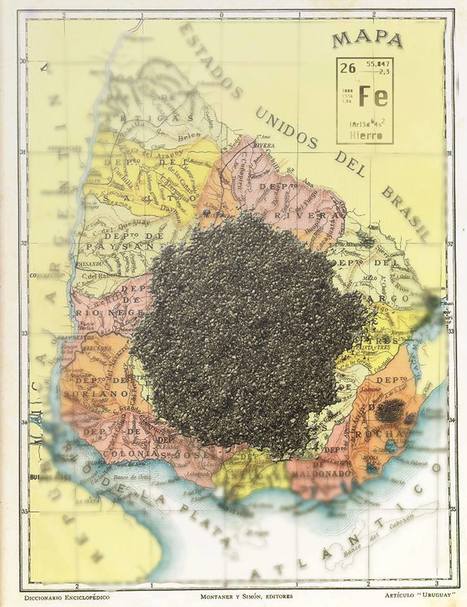



 Your new post is loading...
Your new post is loading...


